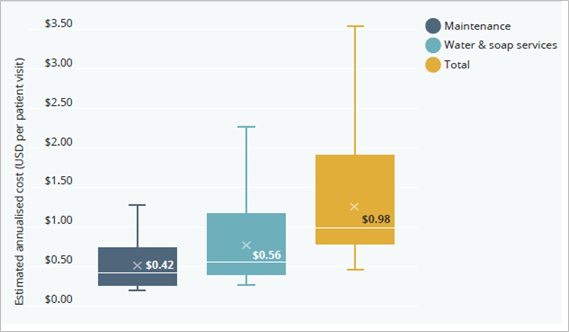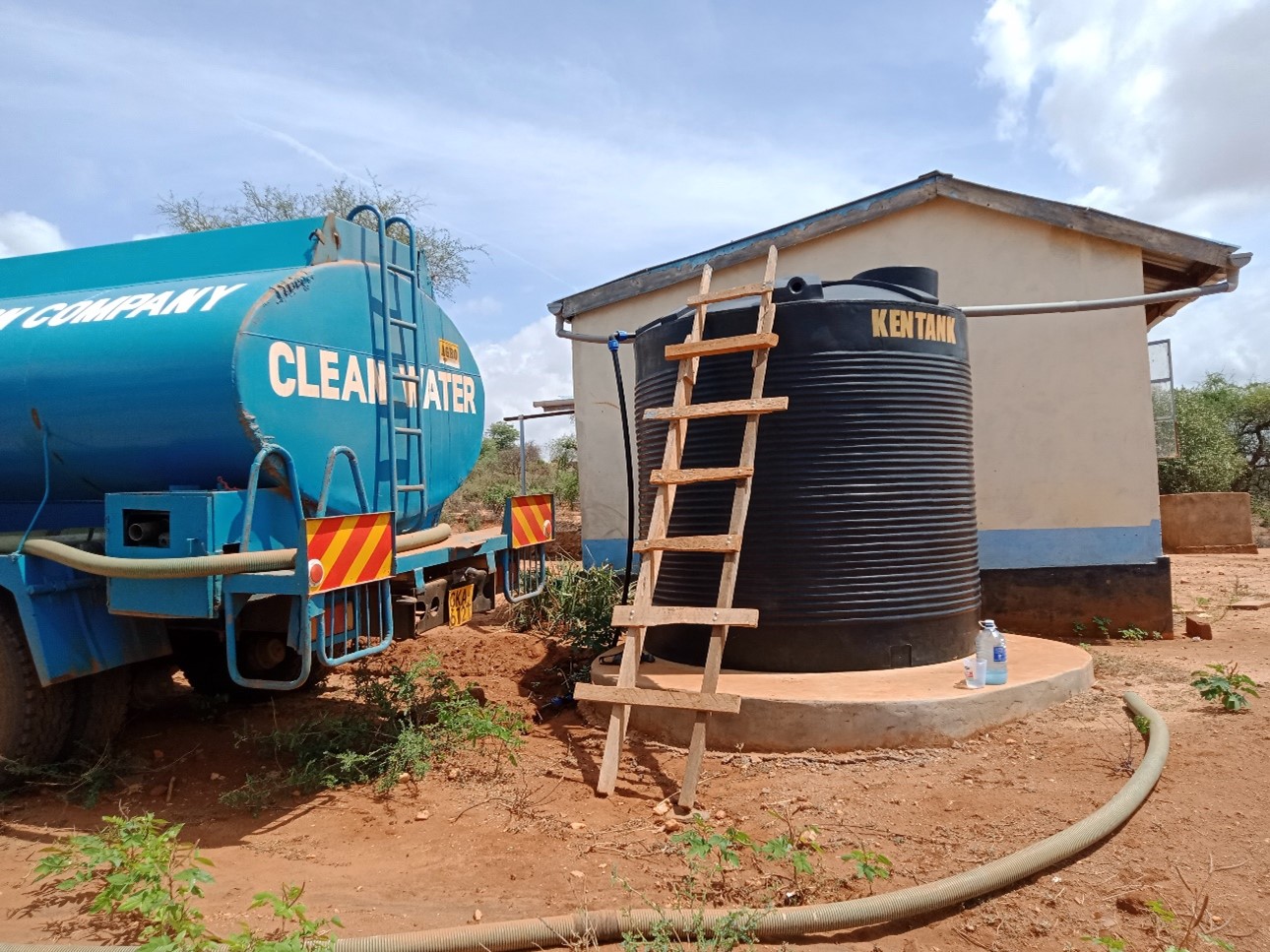Cliff Nyaga, University of Oxford
In rural Kenya, Health Care Facilities (HCFs), specifically dispensaries and clinics, provide lifesaving care for millions of people living in remote villages. These areas are characterised by low population densities and high poverty levels, in turn contributing to limited access to social services such as roads, water, health, education, housing, among others.
The COVID-19 pandemic has shed light on the important role played by rural HCFs and the impact that WASH has on the prevention of disease spread. A pilot intervention implemented in 2020 in Kitui, Kenya supported COVID-19 response efforts by the Kitui County Government, while at the same time monitoring service quality and costs to understand WASH service levels and their variation by water source type and location.
The pilot intervention was managed by FundiFix, a local enterprise providing professionalised repair and maintenance service for rural infrastructure, guaranteeing a reliable water service and involved one sub-County hospital and 11 dispensaries in Mwingi North sub-County over a six-month period (October 2020-March 2021) during the COVID-19 pandemic. For the duration of the pilot, the 12 HCFs received a range of services, including:
- Repair and expansion of rainwater harvesting systems for optimal functionality and to maximise rainwater storage in the wet season
- Yard connections to HCFs in close proximity (less than a km) to the local water utility network
- Water trucking to all HCFs in the dry season for water refills, with chlorination to ensure safety
- Installation of handwashing stations, with instructions on social distancing and handwashing provided, and
- Regular supply of liquid soap.
The insights shared here are based on rural dispensaries only, being the first line of service for most rural communities in Kitui. The study suggests that;
- Sanitation service levels were low across all facilities, with no public dispensary achieving a basic sanitation service under the WHO/UNICEF JMP WASH in health care facilities definitions.
- While dispensaries generally report high water service levels, reliance on rainwater harvesting means water is either unavailable or insufficient during the long dry season, while piped water from community or utility network is prone to regular breakdowns, exposing facilities to severe shortages and costly alternatives. In addition, climate research work in Arid and Semi-arid (ASAL) Counties such as Kitui by the REACH programme reveals dependence on rainwater harvesting may further expose HCFs to service interruptions due to high seasonal variability of rainfall over space and time.
- The cost of providing reliable water and handwashing service in HCFs is estimated to be around $1 per patient visit, when considering soap, water, and the maintenance required to ensure that the service is reliable.
- The price of water increases with distance from the local water utility network with vended water around 30 times more expensive than piped water.

It is well documented that improving WASH in HCFs translates to social and health benefits for rural communities. The COVID-19 pandemic not only underscored the importance of WASH services for all but also presented a window for sector players to dialogue, test, and scale ideals/approaches to improve service delivery. The pilot confirms the capacity of professionalised service providers, such as FundiFix, to deliver high-quality WASH services as part of a ‘utility’ solution for rural areas.
The study also points to a more efficient service delivery approach where professionalised services could be bundled not only for communities but also to include HCFs in an area-wide service approach. The estimated cost of US$1 per patient visit provides empirical evidence on which government planning and partner/funder commitments can be based upon to secure universal WASH services for all. For FundiFix, the study provides better visibility on ways to advance business growth, including demand, costs, and efficient pathways for scaling service coverage.
Find out more:

